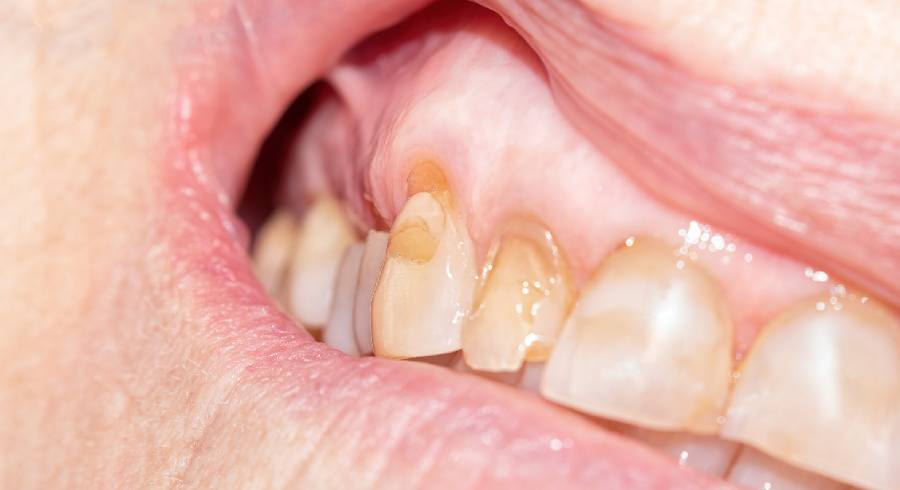
Chewing gum is a common habit for many people, whether it is to freshen breath or satisfy a craving for something sweet. However, when it comes to oral health, there is a debate about whether chewing gum is good or bad for your teeth. Some studies suggest that chewing gum can actually have positive effects on dental health, such as increasing saliva production and reducing the risk of cavities.
On the other hand, there are concerns about the potential harmful effects of chewing gum, such as jaw problems and dental treatments.
The Impact Of Chewing Gum On Dental Health
Chewing gum has been a subject of debate when it comes to its impact on dental health. For instance, chewing gum stimulates saliva production, which helps to wash away food particles and neutralize acids in the mouth, reducing the risk of cavities. Additionally, chewing sugar-free gum after meals or snacks can help promote saliva flow and aid in the remineralization of tooth enamel.
However, there are concerns regarding the potential negative effects of chewing gum on the teeth. One common concern is the potential for dental treatments, such as veneers or crowns, to be dislodged or damaged while chewing gum. Furthermore, excessive gum chewing or chewing gum with a high sugar content can lead to jaw problems, such as temporomandibular joint disorder (TMJ).
Advantages Of Chewing Gum For Oral Hygiene
While there are concerns regarding the potential negative effects of chewing gum on dental health, there are also several advantages that should be considered:

Gum Ingredient Xylitol Is Good For Your Teeth
One of the key factors to consider when choosing a gum that is good for your teeth is the ingredient xylitol. Xylitol is a natural sweetener that has several oral health benefits. Not only does it help to stimulate saliva production, but it also inhibits the growth of bacteria in the mouth. This can significantly reduce the risk of tooth decay and gum disease.
Numerous studies have shown that regularly chewing gum containing xylitol can lead to a decrease in plaque buildup and cavities. In fact, some dental associations recommend chewing xylitol gum after meals to help neutralize acids and promote a healthy pH balance in the mouth.
It is important to note that while xylitol is generally safe for consumption, excessive intake can have a laxative effect. Therefore, it is essential to follow the recommended dosage guidelines provided by the gum manufacturer.
It Prevents Dry Mouth
One additional benefit of chewing gum is that it can help prevent your mouth from drying up. Saliva plays a crucial role in maintaining oral health by washing away food debris and neutralizing acids in the mouth. When saliva production is low, such as during periods of dry mouth, the risk of tooth decay and gum disease increases.
Chewing gum stimulates saliva flow, which can help keep your mouth moist and prevent dry mouth. This is especially beneficial for individuals who may experience dry mouth as a side effect of certain medications or medical conditions.
However, it is important to note that not all gum brands and flavors are created equal in terms of their ability to prevent dry mouth. Look for gums that are specifically formulated to combat dry mouth or those that contain xylitol, as mentioned earlier. These gums can provide additional benefits for your overall oral health.

It Prevents The Erosion Of Your Teeth
Another advantage of chewing gum is its potential to prevent tooth erosion. Tooth erosion occurs when the enamel, the protective outer layer of your teeth, wears away due to exposure to acids from certain foods and drinks. This can lead to tooth sensitivity, discoloration, and an increased risk of tooth decay.
When you chew gum, your mouth produces saliva, which helps to neutralize and wash away the acids that can cause tooth erosion. By increasing saliva flow, chewing gum can assist in maintaining the integrity of your tooth enamel and minimizing the risk of erosion.
However, it's important to note that not all gum is created equal when it comes to preventing tooth erosion. Opt for sugar-free gum, as sugary gums can actually contribute to tooth decay. Additionally, be mindful of the frequency and duration of gum chewing, as excessive chewing can lead to strain on your jaw muscles.
It Can Improve Your Cognitive Performance & Reduce Stress
Another benefit of chewing gum is its potential to improve cognitive performance and reduce stress levels. Studies have shown that chewing gum can enhance certain cognitive functions like memory, attention, and concentration. The act of chewing increases blood flow to the brain, delivering more oxygen and glucose, which are essential for optimal brain function.
In addition to its cognitive benefits, chewing gum can also help in reducing stress. The repetitive motion of chewing can act as a stress-reliever and provide a sense of relaxation. It can also help in redirecting nervous energy and providing a distraction from stress-inducing situations.

It Prevents Bad Breath
Another advantage of chewing gum is its ability to prevent bad breath. Many people turn to gum after a meal or before an important meeting to freshen their breath. Chewing gum increases saliva production, which helps to wash away bacteria and food particles that can cause unpleasant odors. Additionally, the act of chewing gum can mask bad breath by emitting a pleasant fragrance, especially if it is flavored with mint or other breath-freshening ingredients.
Keep in mind that chewing gum should not replace regular dental hygiene practices like brushing and flossing. It is merely a supplemental measure that can provide temporary relief.
Can You strengthen your teeth with chewing gum?
While chewing gum can provide some benefits for oral health, such as increasing saliva production and freshening breath, it's important to note that it cannot actually strengthen your teeth. Some gum manufacturers claim that their products can strengthen teeth or prevent tooth decay, but these claims are often unfounded.
Tooth strength is primarily determined by the mineral content of the teeth, which is influenced by factors like diet, oral hygiene habits, and genetics. Chewing gum alone cannot provide the necessary minerals to strengthen tooth enamel.
In conclusion, while chewing gum can provide some minor benefits for oral health, it cannot replace good dental hygiene practices or strengthen teeth. It is best to view chewing gum as a supplement to regular brushing, flossing, and dental visits, rather than a solution to dental problems.





